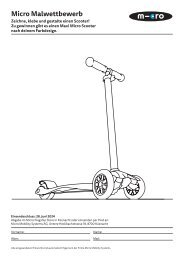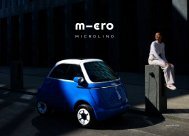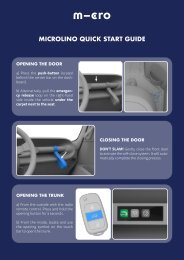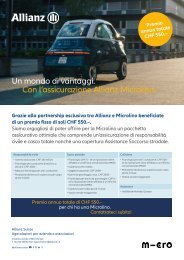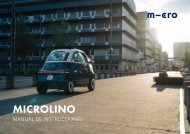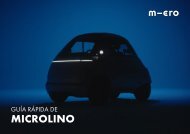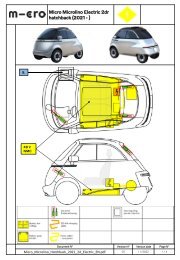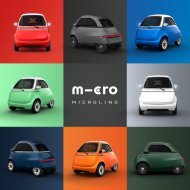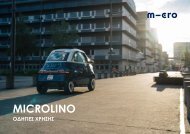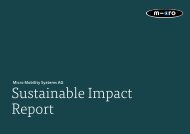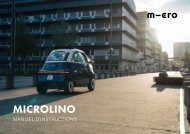Create successful ePaper yourself
Turn your PDF publications into a flip-book with our unique Google optimized e-Paper software.
MICROLINO<br />
THE STORY<br />
How it all began<br />
After discovering the old concept of<br />
the ISO Rivolta from the 1950ies,<br />
we were determined to bring it<br />
to life again. In collaboration with<br />
the university ZHAW and Designwerk, we<br />
conducted several studies on the necessary<br />
adjustments to transform this design of the<br />
past into a car for the future. For testing<br />
purposes, we electrified an old Isetta (the<br />
German version of the car) to analyse our<br />
results and get the feeling of such a small car.<br />
From all the positive reactions and excitement<br />
from people on the street, we knew that this<br />
project had to be further developed.<br />
First prototype<br />
We decided to go to China in order to create the<br />
first prototype based on our new design, which<br />
was built between August 2015 and January<br />
2016. This was then presented to the public for<br />
the first time at the Geneva Motor Show. This<br />
generated over 200 million media contacts<br />
and within a week we received more than 500<br />
reservations. In total, over 4700 reservations<br />
have been placed since February 2016.<br />
Starting the production<br />
The next step was finding an experienced<br />
partner to help us with the development<br />
and production of the vehicle. We joined<br />
forces with Tazzari, an Italian electric car<br />
manufacturer with ten years of experience.<br />
They will focus on all technical aspects of the<br />
car and production, while we are responsible<br />
for the design, marketing and distribution.<br />
Production will begin in the second half of<br />
<strong>2018</strong> at the Tazzari factory in Italy.<br />
Our initial focus will be on the European<br />
market, but we plan to enter other markets<br />
soon thereafter by granting licenses to manufacturers<br />
outside of Europe, thus allowing<br />
production and distribution to be organised<br />
in the respective countries. This licensing<br />
system ensures local jobs, avoids high import<br />
duties (e.g., in Brazil) and reduces CO2 emissions<br />
as a result of shorter transportation<br />
routes.<br />
16 / 17



